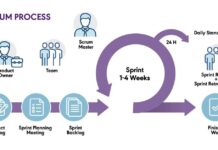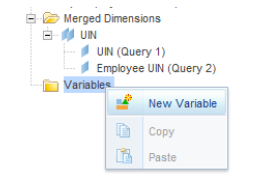What is Priority #1?
My old friend Warner visited me late last year. It had been a few years since we last met, and as our catch-up conversation meandered, he started pointing out many things. Things I thought were standard practice were not as I had thought.
Many parents take their kids to school, but few are on the launch team to form a school. Many people benefit from working for companies but being an adviser to a few companies helps many people with careers and income. Many aspire to write articles that can teach and transform lives, but few get them done.
Do not squander time because this is what life is made of.
I have a full-time professional IT career. I am also an accomplished semi-professional photographer, dancer, and author. I am also working on my family to influence two young kids positively. We are all given the same 24-hour days to utilize per day, but everyone uses it differently.
I tried to explain to him that my secret is my super supportive wife. As we spoke, the phone continually rang, and he pointed out something that was a blind spot to me. Warner said, “you multitask very well.”
MULTI-TASKING
I never thought this was my strength because I think multitasking is an optical illusion. Like any CPU, the human brain can only do one task at a time, and context switching forces our brain to swap tasks into and out of the brain. AKA lack of focus.
I have given this more thought, and after reading “Manage Your Time to Reduce Your Stress,” I have agreed with the author, Rita Emmett. Multitasking is all about doing more than one task, but it has to be “one thinking” and “one non-thinking” task. If you do two thinking tasks, that is not multitasking but multi-focused.
You can fold clothes and watch TV or exercise while you watch TV. You can drive your car and listen to audiobooks.
TIME WEALTHY MENTALITY
Since our conversation, I have been exploring the essence of my productivity. I want to share some of my secrets openly. One thing that stands out is that I sleep on average 6 hours, giving me more hours to get things done. I do not recommend this, but if you are up, make these hours count. You must be proactive, NOT passive, and do not wait for things to happen. Make them happen. There is no such thing as time management. There is only personal management. Personal Mastery makes you time wealthy.
PRIORITY
WHAT IS IMPORTANT IS KNOWING WHAT IS IMPORTANT — PETER DRUCKER
As I thought about it more and more, I realized that knowing the fundamentals of priority is a big part. First, you must live your dream, or someone will sign you up to live someone else’s. Once you know what you want, then you can quickly determine if the actions on your to-do list support your dream or not.
ABANDONMENT
You cannot do it all. You have a fixed amount of energy in a day to get it done. I spend as much time thinking about what I will not do as I make my to-do list. The irony is the more successful you become, the more people will bring you their ideas for you to help them make them a reality, making your list longer.
Luckily for me, Peter Drucker’s theory of “purposeful abandonment” is wedged somewhere in my subconscious.
“RESPONSIBLE ACTION THAT DELIVERS RESULTS, THE RIGHT ACTIONS, IMPORTANT ACTIONS. ABANDONMENT OF THINGS THAT DO NOT WORK IS THE FLIP SIDE TO INNOVATION; YOU CANNOT HAVE INNOVATION WITHOUT ABANDONMENT.” — INSIDE DRUKER’S BRAIN
I know this is obvious stuff, but the repetition of fundamentals increases the success of learning. All tasks fall into this matrix of urgent and important priority. It would be best if you took the right action based on the task to be productive.
There are some templates you can print and use for list management.
Note: Do not list any task that can be done in 2 minutes. Do it now.
| TASK | URGENT | IMPORTANT | ACTION TO TAKE |
|---|---|---|---|
| TASK1 | YES | YES | Do it now |
| TASK2 | YES | NO | If possible, do it quickly, then get it done. If it will take time, try to delegate it to someone, or you will have to delegate it to your calendar. |
| TASK3 | NO | YES | Set a deadline and block calendar time to finish them; do not allow interruptions. |
| TASK4 | NO | NO | Try to eliminate it, else then try to delegate it. If you must do it, schedule it for a time when you are least productive. |
Now make three lists and reallocate the incoming requests.
- DO now
- Calendar
- Delegate or Multi-task. If you have no one to delegate the task. E.g., you can do this task while watching TV or doing something you enjoy.
| DO NOW List | ||
| # | TASK | STATUS |
|---|---|---|
| 1 | ||
| 2 | ||
| 3 | ||
| 4 | ||
| 5 | ||
| 6 | ||
| 7 | ||
| 8 | ||
| 9 | ||
| 10 | ||
| Calendar List | ||
| # | TASK | STATUS |
|---|---|---|
| 1 | ||
| 2 | ||
| 3 | ||
| 4 | ||
| 5 | ||
| 6 | ||
| 7 | ||
| 8 | ||
| 9 | ||
| 10 | ||
| Delegate List | ||
| # | TASK | STATUS |
|---|---|---|
| 1 | ||
| 2 | ||
| 3 | ||
| 4 | ||
| 5 | ||
| 6 | ||
| 7 | ||
| 8 | ||
| 9 | ||
| 10 | ||
I want to redefine the word “delegate” used in the matrix above. I do not pass my task on to a junior. I do not give the “scutt” work to the residents to rattle their brains for some busy time. I partner with experts. I try to find people who can solve this fast and put the problem to rest instead of letting it linger on for a few weeks with a less knowledgeable person.
We live in a far more complex world where we manage personal, job-related, and family lists. If you block time for each of these types, then you will eliminate competing top priorities of a list type. It is hard to know which is more important for different list types. Another tip as your list grows long and wild is to tame the list using the Pareto principle or the 80/20 rule. e.g., if you have ten important and urgent items, then only pick 2 of the 10. i.e., 20% will give the majority or 80% of the results.
Sharing is Caring. Thanks for reading and Sharing ❤
Follow me On: Instagram | Facebook | Linked in
Subscribe for monthly Inspiration










